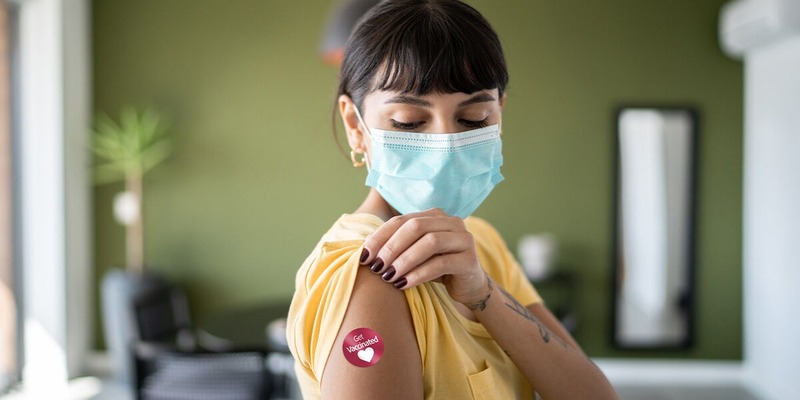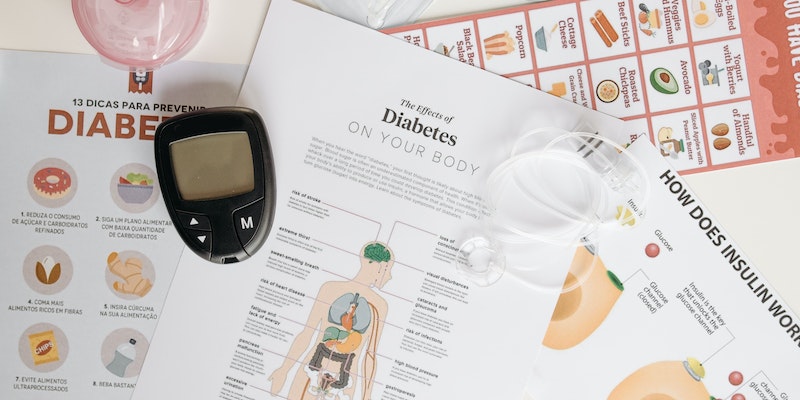Can Booster Shots Affect Your Body Negatively?
Oct 19, 2023 By Madison Evans
Pfizer-BioNTech and Moderna's newest COVID-19 booster injections have been modified to more effectively target coronavirus strains that are circulating and are predicted to continue spreading this autumn and winter. The updated boosters are virtually identical to those before they were taken off the market a year ago.
They pass along two: one specific to the original strain of the coronavirus and one specific to subvariants of omicron that are responsible for nearly all new infections in the U.S. People are still curious about the new omicron boosters and their potential implications.
Ingredients In Vaccines Are Primarily Unchanged

There is no basis for suspecting that the symptoms brought on by the latest COVID-19 booster would be any different from those brought on by earlier vaccine doses or boosters. Even though all of the other components remained the same, the immunological response was responsible for the undesirable outcomes.
Dr. Jose Mayorga, director of the Family Health Centers at UC Irvine Health, concurred, saying, "The standard adverse effects following a vaccine can be expected." Mild adverse effects, treatable with over-the-counter NSAIDs such as Tylenol or Motrin, have been reported by individuals we have vaccinated at our clinic.
Typical Adverse Reactions Are Expected
Because clinical tests evaluating the BA.4 and BA.5-specific injections are still being conducted, the authorities in charge of regulating the healthcare industry adopted a somewhat different approach this time to give their blessing to the reformulated omicron boosters.
Instead, they looked at the information from the first booster injections, which targets the original coronavirus strain and BA.
According to Peter Marks, M.D., director of the Center for Biologics Evaluation and Research at the FDA (FDA). According to experts, this modest change is not expected to compromise the safety of the vaccination.
• Adverse Reactions To Modern Booster
According to CDC statistics, pain at the injection site was the most common adverse event recorded by persons who received the bivalent omicron booster manufactured by Moderna.
Approximately 80% of study participants reported tiredness, headaches, muscle and joint discomfort, chills, nausea, vomiting, and fever. There were no serious adverse effects.
Injection site discomfort, exhaustion, headache, muscle pain, and joint pain were the five most often reported adverse events following the dosage of Moderna's first COVID-19 booster.
Pfizer Booster Adverse Effects
About 60% of those who received Pfizer's revised vaccination reported experiencing pain at the injection site during the clinical study.
The original Pfizer COVID-19 booster also included the common adverse effects of exhaustion, headache, muscular discomfort, chills, joint pain, diarrhea, fever, and vomiting.
In addition, no adverse events were documented with the Pfizer experiment, as in Moderna's bivalent booster trial. However, specialists say they will continue to monitor the shallow risk of myocarditis in booster recipients of both companies.
Most cases of this heart ailment, which causes inflammation and ultimately cardiac weakness, have been seen in people of reproductive age.
What About Less Common Adverse Effects?

One in one hundred persons may develop a relatively rare adverse effect, such as swollen lymph nodes that linger for up to two weeks after getting the vaccination. However, this is expected due to the body's immunological reaction.
Temporary drooping of one side of the face is an uncommon side effect that could affect roughly 1 in 1,000 persons. There is a possibility that some people will experience an allergic response.
However, there needs to be more information on this because no cases have been documented. Insignificant in terms of potential fatality, these symptoms should eventually go away on their own.
Reducing The Risk of Adverse Booster Effects
The good news is that if you or someone you know has been vaccinated and then "boost" with an mRNA vaccine (as millions of Americans have), you will likely already know what to anticipate and how your body may react.
Robert Weber, the administrator for pharmacy services at the Ohio State University Wexner Medical Center and assistant dean for medical center affairs at the Ohio State University College of Pharmacy, previously told AARP.
He also mentioned that people who experience pain after receiving the immunization could use an OTC pain medication. However, it is essential to note that preemptively taking these medications to avoid unwanted effects is not recommended. The CDC recommends placing a clean, cold, moist towel on the arm where the shot was given to alleviate any soreness or swelling.
-
 Food Nov 08, 2023
Food Nov 08, 2023Top 15 Fruits to Beat the Heat This Summer
Discover our top 15 summer fruits for beating the heat. Learn about their unique nutritional benefits and how they can keep you refreshed and healthy.
-
 Food Nov 08, 2023
Food Nov 08, 2023Unveiling the Health Secrets: The 8 Key Wellness Benefits of Mint
Discover the myriad of health benefits mint offers, from aiding digestion to boosting energy. Learn how to incorporate this nutrient-rich herb into your daily routine.
-
 Condition Oct 11, 2023
Condition Oct 11, 2023Exploring the Complex Relationship Between Diabetes and Sleep Quality
Did you know diabetes can also interfere with sleep by causing restless leg syndrome, making it difficult to fall and stay asleep?
-
 Condition Oct 19, 2023
Condition Oct 19, 2023Can Booster Shots Affect Your Body Negatively?
New COVID-19 booster injections from Pfizer-BioNTech and Moderna have been improved to target circulating coronavirus strains better and are expected to expand further this fall and winter. The modernized boosters are nearly indistinguishable from the ones that were available before they were pulled off shelves a year ago
